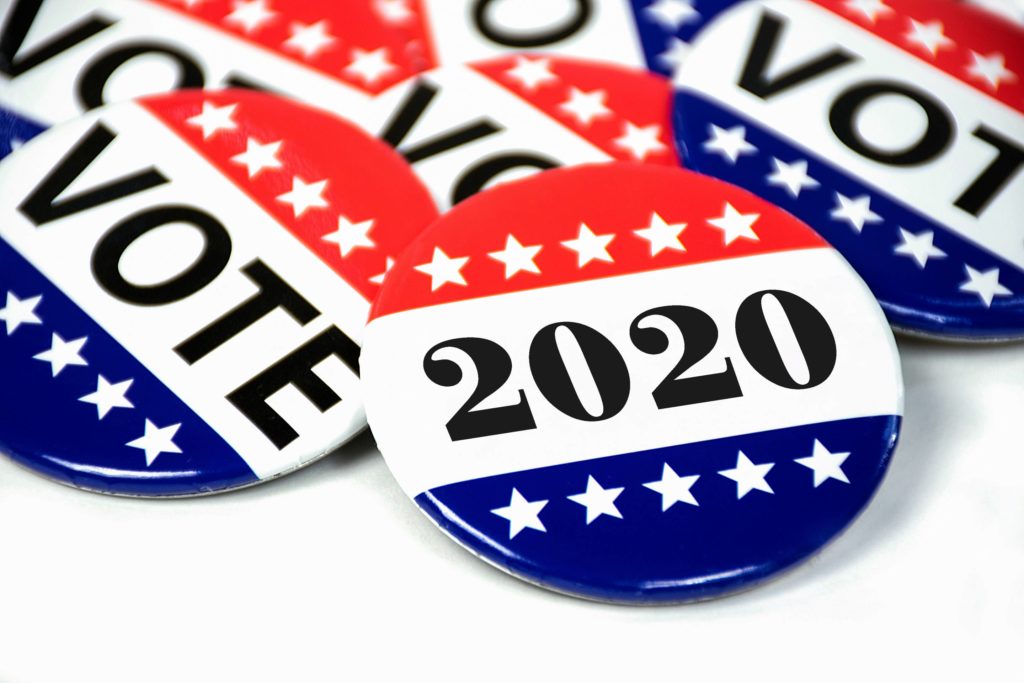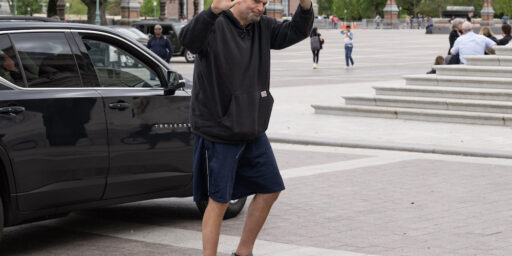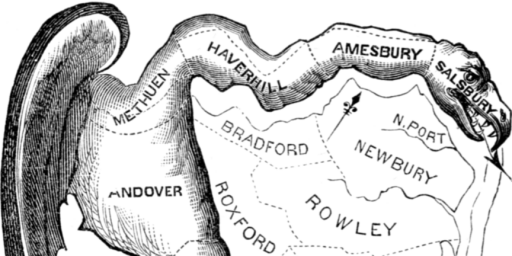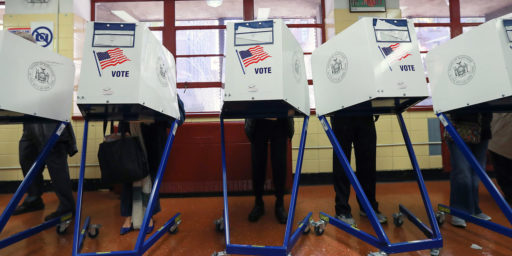SCOTUS Denies Emergency Order to Allow Texans to Vote By Mail
Whether the 26th Amendment precludes giving preferential treatment to the elderly will have to wait for another day.

A novel Constitutional theory did not win over the Justices of the United States Supreme Court, at least not on an expedited basis.
NYT (“Supreme Court Turns Down Request to Allow All Texans to Vote by Mail”):
The Supreme Court said on Friday that it would not require Texas to let all eligible voters vote by mail.
The Texas Democratic Party and several voters had urged the court to reinstate a federal trial judge’s injunction requiring state officials to allow all voters, and not just those who are 65 or older, to submit their ballots by mail. They relied on the 26th Amendment, which lowered the voting age to 18 and said the right to vote “shall not be denied or abridged by the United States or by any state on account of age.”
The court’s brief order gave no reasons, which is typical when the justices rule on emergency applications, and there were no noted dissents. Justice Sonia Sotomayor issued a statement saying that the question in the case raised “weighty but seemingly novel questions regarding the 26th Amendment.”
But she said the court was right not to address those questions in the context of an emergency application. “I hope,” she wrote, “that the court of appeals will consider the merits of the legal issues in this case well in advance of the November election.”
That even Sotomayor didn’t think this merited emergency action should, hopefully, forestall the charge that this is a conspiracy by the Republican-appointed Justices to suppress turnout in November to help re-elect President Trump. It’s almost certainly the right ruling.
As a matter of public policy, it strike me that all states should allow voting by mail by all those entitled to vote, regardless of age, in all elections. While there are theoretical reasons to think this system is the most ripe for fraud, we have enough experiential evidence to know that the actual risk is quite tiny. And, rather obviously, the case is made much stronger by a global pandemic during which cramming large numbers of people together could be deadly.
As to the merits of the argument advanced here, I’m beyond speculating on how the courts will rule. Rather clearly, the sole purpose of the 26th Amendment was to lower the voting age from 21 to 18. Full stop. But, in a world where statutes passed half a century ago to protect women are being interpreted to mean small-town funeral homes can’t fire a man for wearing a dress*, it’s more than reasonable to interpret the Amendment to preclude any age-based discrimination in voting.
__________________
*And, no, I’m not making light of the plight of transgender women. The Court decided decades ago that employees can’t be penalized for gender-nonconforming dress and mannerisms.






I don’t know. Age discrimination was a think talked about at the time the 26th was passed, as it is now. Can we be sure that age discrimination against senior citizens wasn’t contemplated?
If the only thing you wanted the amendment to do was lower the voting age, you didn’t have to put that clause in, which is quite general, and doesn’t specify youth.
At the same time, I defer to Justice Sotomayor’s assertion that this kind of order is not a good place for the court to take up this issue. The case is quite a bit more complex than simple age discrimination.
@Jay L Gischer: Sure. And I’m not four-square opposed to a broader reading of the Amendment, but would need to be sold on it.
In this case, I guess the operative question is one of intent. Were Texas legislators (or whoever crafted the policy) trying to suppress the vote? Or were they simply granting a one-time exception for the elderly on the basis that they’re particularly vulnerable to this disease? The latter seems to be perfectly reasonable and it would be outrageous to prohibit no allowances for special cases under the guess that it’s “age discrimination.”
@James Joyner: I think people’s hearts can be full of the best intentions, and they can still discriminate. Intentions matter, but they aren’t sufficient to avoid discrimination.
And yeah, this is a heavy burden. And it seems to be necessary to bear this burden in order to reduce discrimination.
But no, I have no definitive opinion on whether this particular act at this particular time is constitutional or not.
Are you sure about that? Because it kind of reads like “I’m not a racist, but…” Any time you have to say it, you’re probably wrong.
(On a related note, I have a fondness for saying things like “I’m not a racist, but the capybara is the world’s largest rodent”)
Sotomayor’s statement that the case raises “weighty but seemingly novel questions regarding the 26th Amendment,” makes me think “well, that’s kind of why we have a Supreme Court, isn’t it?”
@James Joyner: You can’t separate this from the fact that younger voters are more likely to vote Democrat. Pretending that Republicans are not considering this when they craft their laws is ludicrously naive.
@Gustopher: The recent ruling was about a transgender woman. But its logic was an extension of a case about a woman whose behavior was simply insufficiently feminine.
@Gustopher: @MarkedMan: In an expedited, emergency ruling the court is unlikely to create wildly new precedent or rule on matters not before the court. A petition on bad faith would have likely been more favorably received but would have required direct evidence.
@James Joyner: It is not a one time allowance for people over 65 to vote by mail. It is the current State law regarding eligibility to request an absentee ballot.
People above 65 do not need to provide a reason why they want to vote absentee. People below 65 must provide a reason like disability or being outside of their county on voting day.
Given the explosion of the virus and the likelihood that things get worse in the fall, we have two choices:
1) Start organizing vote by mail now
2) Put people — at least the poor ones — into a position of having to decided between voting and risking death.
@Hal_10000: There may be a third option–simply say you will be out of town on election day. You can’t be sure you won’t be and how does the state prove your assertion to be a lie? (Second half is a serious question, in fact.)
ETA: Don’t live in Texas, but from what I recall, even when one needed to have a reason to request an absentee ballot in Washington State, where I grew up, there was no verification required. Of course, Washington State had no reason to try to disenfranchise me (although, that was probably a mistake on their part. 😛 )
@Gromitt Gunn: Ah. I think that’s defensible on non-suppression grounds. 65 is a lot younger than it used to be but a huge number of people in the above-65 category need special assistance and it’s probably easier to just give them a blanket waiver.
I’m not an expert, or even close to one, on age discrimination law (which I think of as mostly about employment) but I don’t think treating older people better than younger people is problematic. (The EEOC says it’s not, for example.)
I’ve never seen any rulings as to how this applies to voting. I don’t know that it’s ever even come up before. Indeed, while Texas is one of seven states that automatically grant the right to vote by mail to those over a certain age (usually 65, but as low as 60), the first articles I find even raising the issue go back only to April of this year.